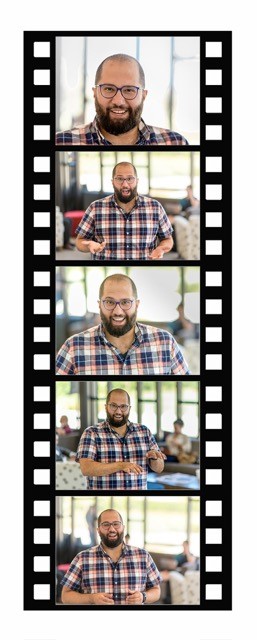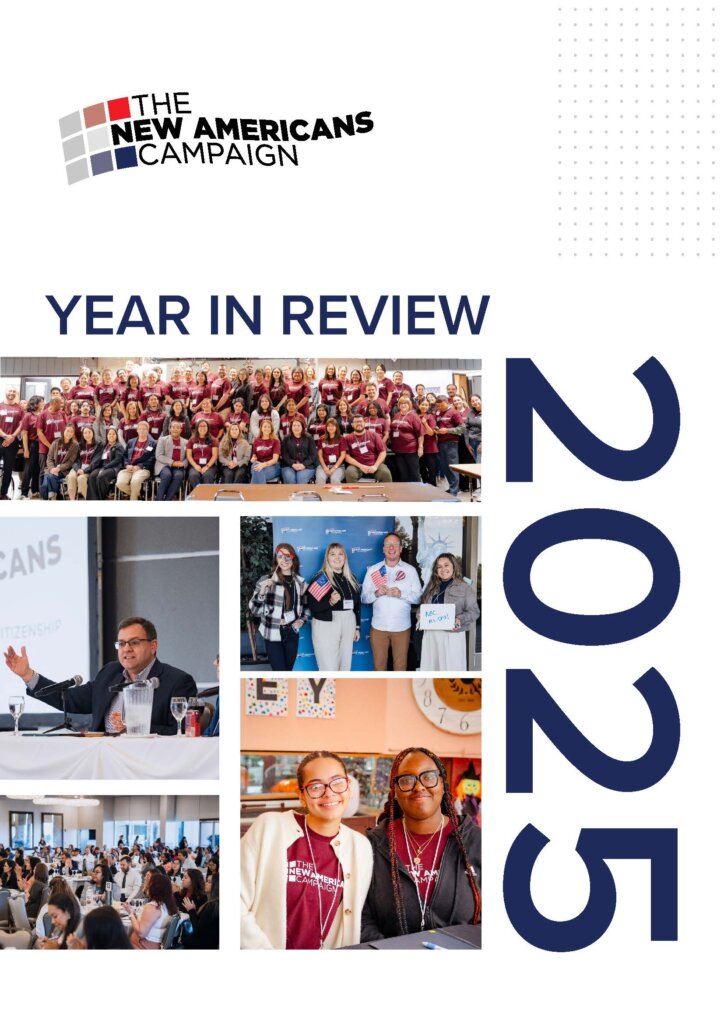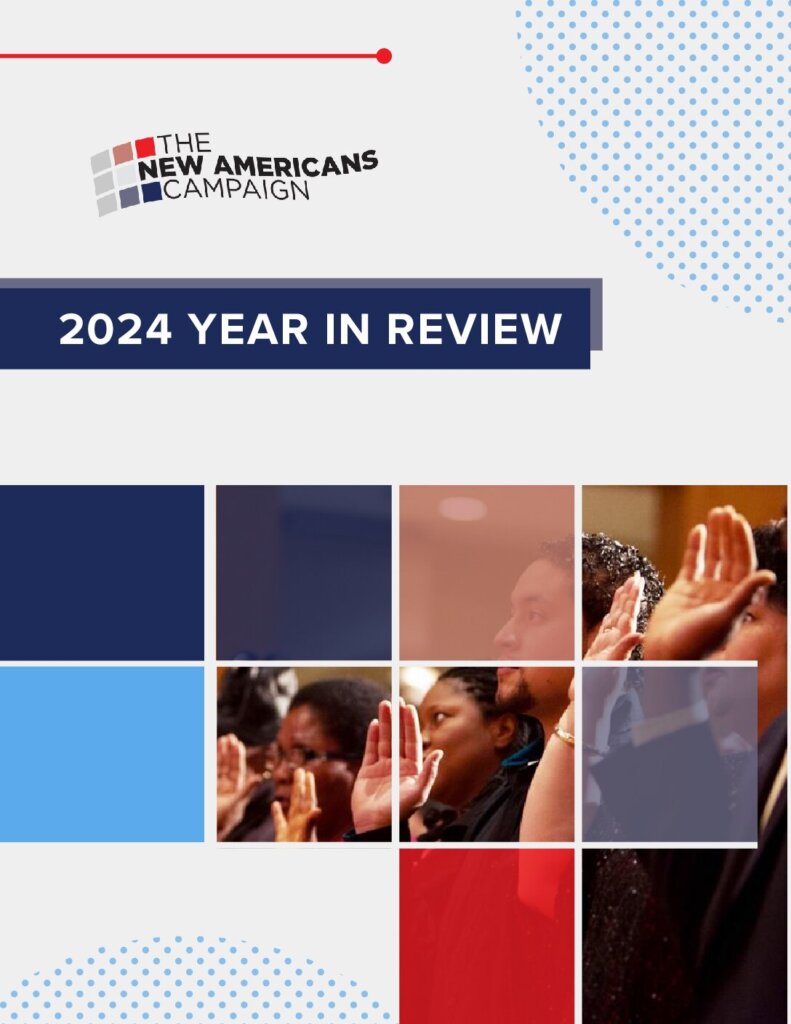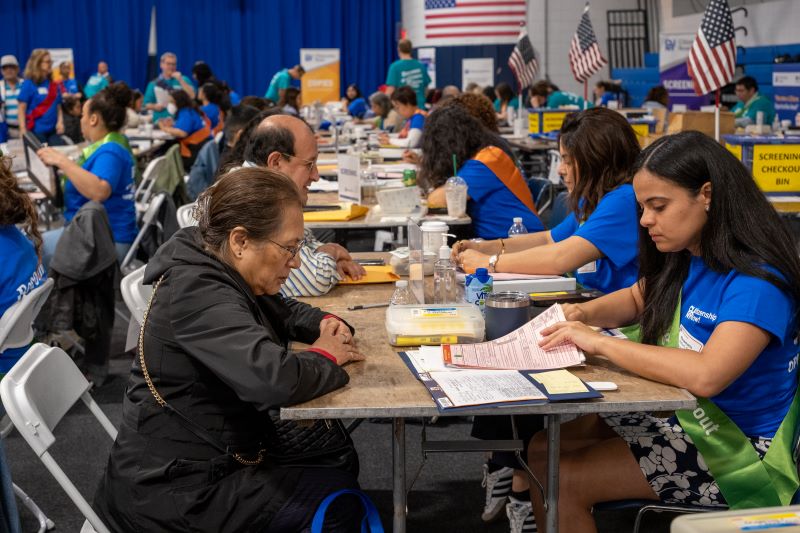Making Citizenship a Top Priority

Explore more
In May, New America’s Public Interest Technology Fellow, Raph Majma, and his colleagues published a report titled Understanding Catalysts for Citizenship Application. It’s an important and informative read—food for thought when looking for new ways to encourage lawful permanent residents to apply for U.S. citizenship.
We
spoke with Raph Majma about some of the study’s more significant findings.
Q: The report makes a
distinction between “motivations” and “catalysts” that inspire people to naturalize.
What is that difference?
Raph Majma: During the course of our research we interviewed more than 63
individuals for at least an hour each to try to analyze what drove their
decision to naturalize—from when they arrived in the United States, to when
they became citizens (and, in some cases, when they hadn’t). They understood
the benefits of citizenship right away: that they could help their families
come to the U.S., and that they would be able to vote is very appealing. There
are certainly some green card holders who say, “After my five years are up, I’m
just going to do it.” But in many cases,
there was something far more urgent that drove them to naturalize, for example,
wanting to apply for a government job, or re-entering the country and having a
poor experience at the airport immigration line, or hating the feeling of being
in a different line than their children who are citizens.
For us, this was an “Aha moment.” For many people there seems to be a pressure point, or “catalyst,” that helps them decide to naturalize. That isn’t to say that people don’t want all the benefits of citizenship, they do; but to cut through all the noise of life, often there must be something more urgent, pressing, and practical to motivate people to go through what can really be an onerous and stressful process.
Q: How do organizations that help people naturalize tap into that
urgency?
Raph Majma: They can frame their
approach around messaging and outreach. In an election year, for example, a lot
of outreach happens around voting and there is often more outreach in general. But
at other times finding the practical benefit is really helpful. For example,
remind people who are traveling and need a passport that they
can get a U.S. passport when they become a citizen, and that may be the green
light for them to begin the process.
We did messaging and context testing, in the course of our research, to find out what resonates most. There were a number of messages about people knowing their rights and having a passport that really resonated. Even after they have naturalized, people who are immigrants told us that it’s hard to shake the feeling of being an immigrant, and fearing that they are being targeted. Providing regular messaging about the specific benefits, at the right time, and in the right context is important.
Q: How can organizations get naturalization information to someone
at the right “window of opportunity;” the moment when someone may be most
interested in becoming a citizen?
Raph Majma: I like to refer to it as “proactive outreach.” Immigration
nonprofits have a client base, the community that comes in their doors for
services at various stages of their process. Maybe they are doing a financial
literacy course, or they’re doing health services, or legal services.
Organizations do an intake process and they keep that data, so at some point they
can look at the data and see that they have had people in their system for five
years who may not be citizens yet. They can do some targeted outreach, and say,
“we think you’re going to be eligible to naturalize, why don’t you come in and
talk to us? If you have the data, you can use that data in a responsible way.
Another approach is when folks come in for naturalization clinics and workshops an organization can make sure that clients know they can refer friends and talk to friends and family about the help they’ve received. In other words, creating that internal referral network. We saw time and again, that family and friends really had a lot of influence on thinking about naturalization and sometimes even timing around naturalization.
Q: Any final thoughts about messaging?
Raph Majma: Being able to convey citizenship as practical, or as urgent a
benefit as possible is where we saw real success,whether that is the benefit of
feeling secure living in the country or traveling with the U.S. passport. The
other thing that we saw time and again was that cultivating word of mouth is
really important. Have people bring their friends and loved ones in, and make
sure that people are telling their naturalization story.
The report, Understanding Catalysts for Citizenship Application, includes an insightful list of recommendations for nonprofits that can be found by clicking here.



